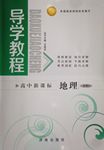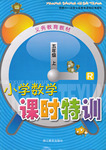题目内容
Water and its importance to human life were the centre of the world’s attention last week. March 22 was World Water Day and 36 the theme “Water for Life”.
There are more than one billion people in the world who live without 37 drinking water. The United Nations 38 to cut this number in half by 2015.
Solving such a big problem seems like a(n) 39 challenge. But everyone, 40 teenagers, can do something to help. A teenage girl in the US has set an example to the 41 of her age around the world.
Rene Haggerty, 13, was awarded the 2004 Gloria Barron Prize for her work— 42 discarded(废弃的) batteries(电池)which pollute water.
In 2003, Haggerty went on a field trip to the Great Lakes Science Centre in Ohio. There she saw an exhibit about how 43 in old batteries harm the water of Lake Erie.
Haggerty learnt that 44 the batteries was an easy solution. “I think everybody can do it, because everyone 45 batteries, and it can make a big difference.” With these words, she began to 46 awareness in her area.
She 47 her county government and school board. She got permission to start a recycling programme in schools 48 the public library, hospital, and churches. With help from her family, friends and local waste-management 49 , she gathered containers, arranged transportation, and made a(n) 50 video.
Over the past two years, she collected four tons of batteries and drew the attention of officials, who were in charge of a battery recycling programme but had made 51 progress.
When asked 52 she feels like a hero, Haggerty is quite ____53 . “Not really. Well, maybe for the fish I saved!”
Every year the Gloria Barron Prize 54 young Americans aged 8 to 18 who have shown leadership and courage in 55 the public and the planet. Each year ten winners receive US $ 2,000 each, to help with their education costs or their public service work.
1. A.had B.gave C.wrote D.discussed
2. A.enough B.safe C.much D.polluted
3. A.asks B.orders C.hopes D.ensures
4. A.good B.strong C.important D.unreal
5. A.especially B.sometimes C.even D.seldom
6. A.boys B.others C.students D.grown-ups
7. A.collecting B.selling C.buying D.using
8. A.things B.chemicals C.water D.air
9. A.making B.recycling C.reducing D.handling
10. A.uses B.has C.throws D.needs
11. A.tell B.increase C.spread D.inform
12. A.talked to B.listened to C.heard from D.thought about
13. A.and B.beside C.as well as D.as good as
14. A.officials B.workers C.clerks D.experts
15. A.industrial B.agricultural C.scientific D.educational
16. A.much B.no C.some D.little
17. A.if B.how C.when D.why
18. A.proud B.glad C.modest D.worried
19. A.praises B.helps C.supports D.honors
20. A.awarding B.saving C.serving D.favoring
1.A
2.B
3.C
4.D
5.C
6.B
7.A
8.B
9.B
10.A
11.B
12.A
13.C
14.A
15.D
16.D
17.A
18.C
19.D
20.C
【解析】
试题分析:本文叙述了水是人们的生命之源,水的重要性已经引起全球人的关注,每年的三月22日为世界水日,它的主题就是要节约用水。文中例举了一些青少年是怎样做的来唤醒其他的人对水的重要性的认识。
1.考查动词及上下文的呼应。 had有; gave给; wrote写; discussed讨论。因为每个节日都“有”一个主题,所以“节水日”也是一样。故选A。
2.考查形容词及上下文的呼应。 enough足够的; safe安全的; much多;polluted 污染的。这里是指没有洁净的水,所以饮用也就不“安全”。故选B。
3.考查动词及上下文的呼应。asks问; orders命令; hopes希望; ensures保证。这里是说联合国“希望”将这个数字减少一半。故选C。
4.考查形容词及上下文的呼应。 good 好的; strong坚强的; important重要的; unreal不真实的。要达到这个目的有极大的困难,好像是一个不真实的挑战。故选D。
5.考查副词及上下文的呼应。especially尤其; sometimes有时; even甚至; seldom很少。这里是说“甚至”青少年也可以参与到这个活动中,做一些有帮助的事情。故选C。
6.考查名词及上下文的呼应。 boys男孩; others其他的人; students 学生; grown-ups成年人。泛指与之年龄相仿的其他青少年,并非指其他某类人。故选B。
7.考查动词及上下文的呼应。 collecting收集; selling卖; buying买;using用。根据后文知是“收集”废弃龟池。故选A。
8.考查名词及上下文的呼应。 things东西; chemicals化学物质; water 水; air空气。是由于电池里面的“化学物”对环境造成的污染和危害。故选B。
9.考查动词及上下文的呼应。making制造; recycling回收; reducing减少; handling处理。这里只有“回收”电池符合上下文。故选B。
10.考查动词及上下文的呼应。 uses使用; has有; throws扔; needs需要。人人都能做点事是因为人人都“使用”它。故选A。
11.考查动词及上下文的呼应。 tell告诉; increase增长; spread传播;inform通知。因为她有这种想法,所以她开始使她生活的地方的人们认识到这一点。故选B。
12.考查动词短语及上下文的呼应。 talked to谈话; listened to听; heard from收到某人的来信; thought about考虑。于是她就向她们县的管理部门和学校董事会“谈”这件事。故选A。
13.考查连词及上下文的呼应。 and表示前后是并列关系; beside在旁边;as well as和; as good as和……一样好。因为后面有and,所以这里只能用as well as。故选C。
14.考查名词及上下文的呼应。 officials官员; workers工人; clerks办事员; experts专家。在waste-management部门工作的是政府官员。故选A。
15.考查形容词及上下文的呼应。industrial工业的; agricultural农业的; scientific科学的; educational教育的。这里说的是她制作一个用于宣传教育的电视影像。故选D。
16.考查形容词及上下文的呼应。much多; no不; some一些; little小。根据这里的but判断。故选D。
17.考查连词及上下文的呼应。 if 如果; how怎样; when什么时候;why 为什么。根据后面的答语not really来判断。故选A。
18.考查形容词及上下文的呼应。 proud自豪的; glad高兴地; modest 谦虚的; worried担心的。根据下文Not really. Well, maybe for the fish I saved!判断,是谦虚的,故选C。
19.考查动词及上下文的呼应。 praises表扬; helps帮助; supports支援; honors给某人荣誉。根据后文知,the Gloria Barron Prize每年都要“奖励”些8到18岁的那些“为公众服务和保护地球”的青少年。
20.考查动词及上下文的呼应。 awarding颁奖; saving挽救; serving 服务; favoring喜欢。the Gloria Barron Prize每年都要“奖励”些8到18岁的那些“为公众服务和保护地球”的青少年。
考点:环保类短文。
点评:在作题时最好将全文通读一下,了解了全文的大意以后再作题。看清上下文,找准定位词。充分利用文章的上下文和前后句,找到对选择有提示作用的词或句。这些词有时可能是同义词或反义词。注意固定的搭配,包括动词与介词的搭配、动词与名词的搭配以及形容词与名词的搭配等,同时要根据内容选择正确的短语,有时用已了解的生活常识来确定答案。

 导学教程高中新课标系列答案
导学教程高中新课标系列答案 小学课时特训系列答案
小学课时特训系列答案